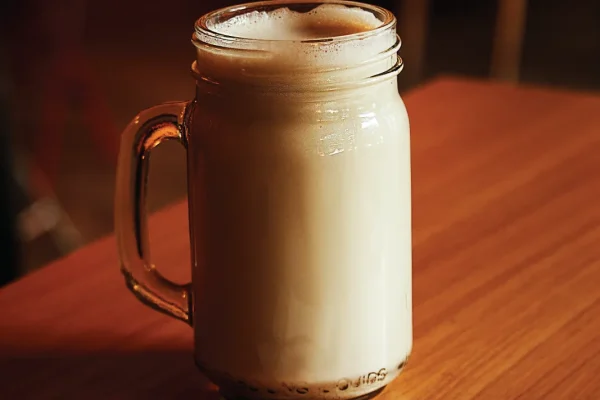Future of Food: From Camel Milk Lattes to Lab-Grown Kebabs
- BUZZAAR
-
Oct 01
- Share post

The GCC has long been associated with luxury dining, extravagant buffets, and global culinary influences. Yet, beneath this indulgence, a quiet revolution is reshaping the way people eat, cook, and experience food. From camel milk lattes in Dubai cafés to lab-grown kebabs in Riyadh, the region’s food-tech scene is evolving rapidly, driven by sustainability, innovation, and a growing appetite for local experimentation.
Camel Milk: Tradition Meets Trend
Camel milk has been a staple in desert diets for centuries, prized for its nutritional value and medicinal properties. Today, it is experiencing a modern revival in the Gulf’s cafés and wellness menus.
In Dubai and Abu Dhabi, artisanal cafés are serving camel milk lattes, cappuccinos, and ice creams, often paired with superfoods like turmeric, date syrup, or cardamom. Brands like Camelicious have popularized camel milk as a lifestyle choice rather than just a traditional drink. Consumers are drawn not only to its health benefits—high in protein, low in cholesterol—but also to its novelty and connection to regional heritage.
Restaurants are also experimenting with camel milk in desserts and cheeses, creating dishes that merge heritage ingredients with contemporary culinary techniques. The result is a blend of nostalgia and innovation, appealing to both locals and tourists eager for a unique gastronomic experience.
Lab-Grown and Plant-Based Proteins
The future of meat in the Gulf is increasingly lab-grown and plant-based, driven by sustainability and food security concerns. Saudi Arabia, the UAE, and Qatar are investing heavily in food-tech startups that can produce meat without the environmental footprint of traditional livestock farming.
Companies like Aleph Farms, with operations in the UAE, are pioneering lab-grown steaks and kebabs that are genetically identical to conventional meat but produced with far less water, land, and greenhouse gas emissions. Meanwhile, plant-based alternatives such as Beyond Meat and Impossible Foods are gaining popularity in high-end restaurants and fast-casual chains across the GCC.
This shift is part of a broader sustainability agenda. With the Gulf importing over 80% of its food, lab-grown and plant-based proteins represent a way to reduce dependency, cut carbon footprints, and ensure food security for a rapidly growing population.

Sustainability on the Plate
Sustainability in cuisine is not limited to meat alternatives. The Gulf’s food industry is also embracing zero-waste cooking, urban farming, and local sourcing. Rooftop farms in Dubai, vertical farms in Riyadh, and aquaponics setups in Doha are turning the region’s arid landscapes into productive food hubs.
Chefs are experimenting with local ingredients like dates, figs, saffron, and seaweed, reimagining traditional dishes while keeping carbon footprints low. Zero-waste cooking initiatives are gaining traction, with kitchens transforming vegetable peels, seeds, and offcuts into broths, condiments, and innovative dishes.
Even in high-end hotels, menus now highlight seasonal, local produce, blending sustainability with culinary creativity. The message is clear: future luxury dining is not just about taste but about responsibility and innovation.
F&B Startups and Experiential Dining
The GCC’s food-tech ecosystem is also driving entrepreneurship and experiential dining. Food incubators and accelerator programs are nurturing startups that combine technology with gastronomy. From AI-powered menu personalization to robotic kitchens, innovation is reshaping how Gulf residents interact with food.
Dubai’s Future Food Lab and Riyadh’s Food-Tech Innovation Hub are platforms where chefs, scientists, and entrepreneurs converge to create sustainable, cutting-edge culinary experiences. Pop-ups and immersive dining events are increasingly featuring molecular gastronomy, edible robotics, and other futuristic techniques that turn eating into a sensory adventure.
Key Insights – The future of food in the GCC is a fascinating intersection of heritage, technology, and sustainability. Camel milk lattes celebrate the region’s desert roots, lab-grown kebabs signal a commitment to sustainable protein, and zero-waste kitchens redefine luxury dining. For consumers, it is an era of choice, curiosity, and conscious indulgence.
As BUZZAAR explores lifestyle trends across the Gulf, one thing is clear: the region’s culinary landscape is not just evolving—it’s being revolutionized. In the kitchens, cafés, and labs of the GCC, tradition and innovation are cooking side by side, promising a future where food is smarter, greener, and infinitely more exciting.

